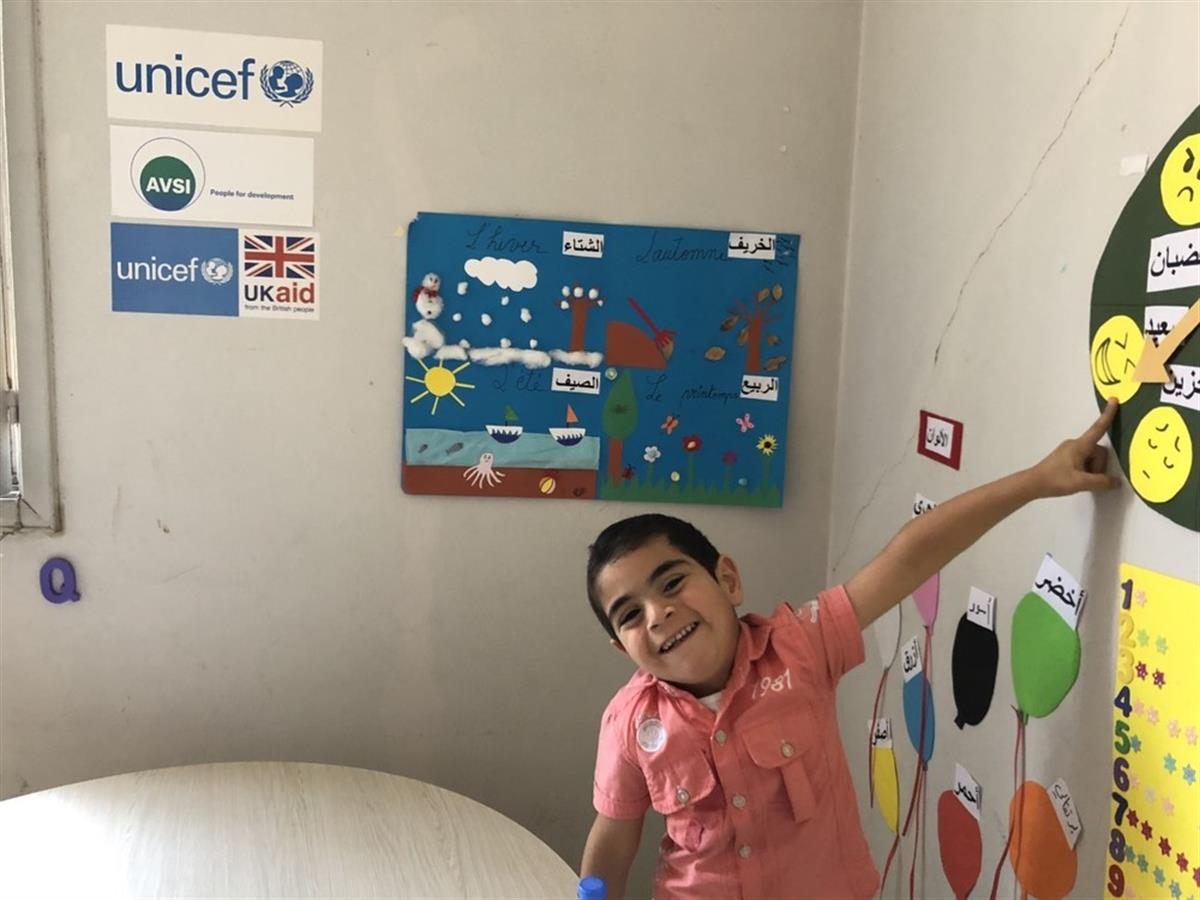
There are currently some 488,000 school-aged Syrian refugee children in Lebanon and more than half of them are still out of school, mainly adolescents and youth (source UNHCR - data 2017/18).
To address the growing need, AVSI is supporting more than 11,000 children between the ages of 3 and 14 through the project "Supporting Vulnerable Girls and Boys to Access and Remain in Education in Lebanon".
Among these children is Khaled, 6 year old, Syrian refugee currently living in Tripoli - Lebanon - with his parents and his three brothers. Although he was born in Lebanon, his family tried to go back to Syria when he was 1 year and a half.
"It was 2015 and we were hoping that the situation back home had become better,” remembers Shadia, Khaled's mother. “We stayed one year in Syria but it was a nightmare. We had to endure many sleepless nights due to the sound of bombs and bullets, and it was too dangerous to stay. We came back to Lebanon, but unfortunately the war had left devastating effects on the family especially on our youngest child Khaled.”
Back to Lebanon Khaled had no possibility to attend school, as Syrian refugees aged three to five years old are not accepted in public schools, but he was involved in the educational activities in one of AVSI’s centers. When Khaled enrolled in the first educational cycle, the teacher described him as very shy. He could barely say a few words, and couldn’t concentrate in class. Staying with his classmates and learning how to write and count allowed him to express himself better, talk more eloquently and be more responsible and confident.
When AVSI’s centers are open, he gets very excited because he enjoys spending time with his teacher and friends. He loves to go to the center and it's amazing how studying became the way he can deal with his fears and weaknesses. I just want Khaled to be happy, I want him to live a healthy childhood.
Shadia Al Salloum, Khaled's mother
The project, funded by UK-aid, Australian Aid, Governments of Canada and France via UNICEF, allows many children to benefit from the Early Childhood Education program and it gives them the chance to learn the basic skills they need to bloom in school while playing and enjoying their time.
In collaboration with the Lebanese Ministry of Education and Higher Education and UNICEF, AVSI is:
- involving children and their families in awareness raising and motivational activities designed to support enrollment in formal public education through public schools, or appropriate non-formal education programs;
- providing Early Childhood Education activities to children aged 3 to 5 years old without access to kindergarten;
- promoting activities to formal and non-formal education through community engagement to girls and boys aged 6 to 14 years old;
- involving 700 adolescents aged 10 to 14 years old in courses of adapted basic literacy and numeracy;
- providing pedagogical support and services for children with special needs in non-formal education and the retention support program.